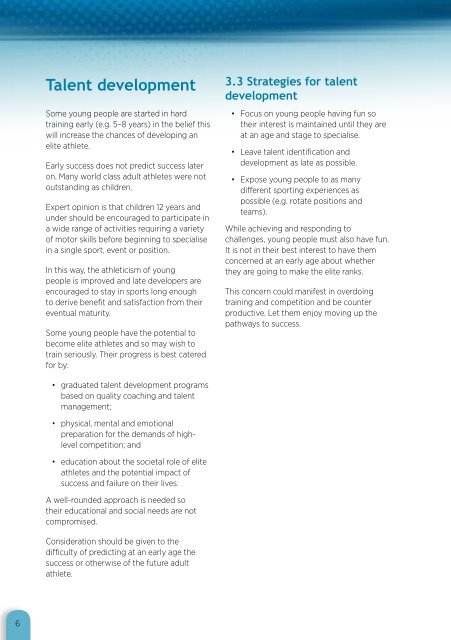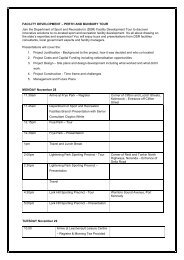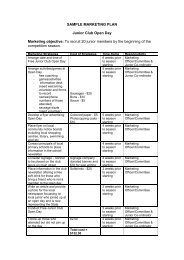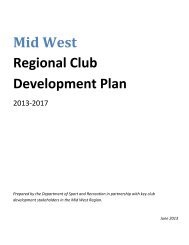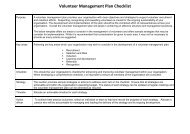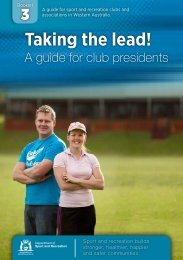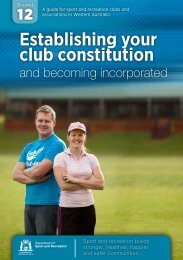Physical growth and maturation - ClubsOnline
Physical growth and maturation - ClubsOnline
Physical growth and maturation - ClubsOnline
You also want an ePaper? Increase the reach of your titles
YUMPU automatically turns print PDFs into web optimized ePapers that Google loves.
Talent development<br />
Some young people are started in hard<br />
training early (e.g. 5–8 years) in the belief this<br />
will increase the chances of developing an<br />
elite athlete.<br />
Early success does not predict success later<br />
on. Many world class adult athletes were not<br />
outst<strong>and</strong>ing as children.<br />
Expert opinion is that children 12 years <strong>and</strong><br />
under should be encouraged to participate in<br />
a wide range of activities requiring a variety<br />
of motor skills before beginning to specialise<br />
in a single sport, event or position.<br />
In this way, the athleticism of young<br />
people is improved <strong>and</strong> late developers are<br />
encouraged to stay in sports long enough<br />
to derive benefit <strong>and</strong> satisfaction from their<br />
eventual maturity.<br />
Some young people have the potential to<br />
become elite athletes <strong>and</strong> so may wish to<br />
train seriously. Their progress is best catered<br />
for by:<br />
3.3 Strategies for talent<br />
development<br />
• Focus on young people having fun so<br />
their interest is maintained until they are<br />
at an age <strong>and</strong> stage to specialise.<br />
• Leave talent identification <strong>and</strong><br />
development as late as possible.<br />
• Expose young people to as many<br />
different sporting experiences as<br />
possible (e.g. rotate positions <strong>and</strong><br />
teams).<br />
While achieving <strong>and</strong> responding to<br />
challenges, young people must also have fun.<br />
It is not in their best interest to have them<br />
concerned at an early age about whether<br />
they are going to make the elite ranks.<br />
This concern could manifest in overdoing<br />
training <strong>and</strong> competition <strong>and</strong> be counter<br />
productive. Let them enjoy moving up the<br />
pathways to success.<br />
• graduated talent development programs<br />
based on quality coaching <strong>and</strong> talent<br />
management;<br />
• physical, mental <strong>and</strong> emotional<br />
preparation for the dem<strong>and</strong>s of highlevel<br />
competition; <strong>and</strong><br />
• education about the societal role of elite<br />
athletes <strong>and</strong> the potential impact of<br />
success <strong>and</strong> failure on their lives.<br />
A well-rounded approach is needed so<br />
their educational <strong>and</strong> social needs are not<br />
compromised.<br />
Consideration should be given to the<br />
difficulty of predicting at an early age the<br />
success or otherwise of the future adult<br />
athlete.<br />
6


